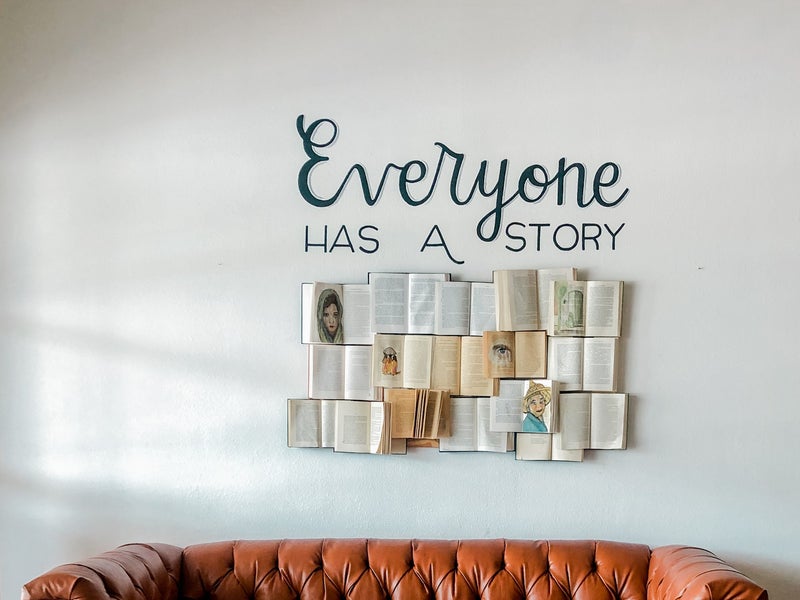Domestic Violence

Domestic Abuse, also called “domestic violence” or “intimate partner violence”, can be defined as a pattern of behavior in any relationship that is used to gain or maintain power and control over an intimate partner. Abuse is physical, sexual, emotional, economic or psychological actions or threats of actions that influence another person. This includes any behaviors that frighten, intimidate, terrorize, manipulate, hurt, humiliate, blame, injure, or wound someone.
Domestic abuse can happen to anyone of any race, age, sexual orientation, religion, or gender. It can occur within a range of relationships including couples who are married, living together or dating. Domestic violence affects people of all socioeconomic backgrounds and education levels.
Recognizing the Warning Signs
It's important to be able to identify the warning signs of domestic violence. We provide resources and information to help you recognize the signs and take action to protect yourself or someone you care about. If you or someone you know is in immediate danger, please call 911.
- Using Coercion and Threats
- Making or carrying out threats to cause harm
- Threatening to leave, commit suicide, report you to welfare or CPS.
- Making you drop legal charges
- Making you do illegal things
- Using Intimidation
- Making you afraid by using looks, actions, or gestures
- Breaking things
- Destroying your or shared property
- Abusing pets
- Displaying weapons
- Using Emotional Abuse
- Putting you down
- Making you feel bad about yourself
- Calling you names
- Gaslighting (playing mind games)
- Making you feel guilty
- Humiliating you in front of others
- Using Isolation
- Limiting your outside involvement
- Using jealousy to justify actions
- Turning your family and friends against you, or you against them
- Monitoring or controlling what:
- you do
- who you see or who you talk to
- where you go
- what you read, listen to, or watch
- Minimizing, Denying, and Blaming
- Making light of the abuse or taking your concerns seriously
- Saying the abuse didn't happen
- Blaming you for the abusive behavior
- Using Children
- Using children to relay messages
- Using visitation to harass you
- Threatening to take the child(ren) away
- Using Gender Privilege
- Treating you like a servant
- Making all the big decisions
- Acting or referring to themselves as "king of the castle" or "queen of the house"
- Defining and assigning household duties using traditional gender roles
- Using Economic Abuse
- Preventing you from getting or keeping a job
- Making you ask for money or giving an allowance
- Taking money
- Keeping family income hidden or inaccessible
Services for Domestic Abuse Clients

There are a wide range of services, including counseling, legal advocacy, and emergency shelter. We also provide safety planning and accompaniment for emergency forensic exams. If you or someone you know needs support, we are here to help.
How Can I Help My Friend/Family in an Abuse Relationship?
We know it is hard to see a loved one in an abusive relationship and you may want to leap into action! But that might not be the best way to go. They might not be ready, they might not believe they are in an abusive relationship, they might still think that he/she will change. Leaving a violent relationship is the most dangerous time for them. BUT, there are things you can do:
- Let them know that you are concerned
- Believe them, know that what they are saying is only the tip of the iceberg
- Create a safe space where they can talk openly and free of judgement
- Reassure them that the abuse is NOT their fault
- Use neutral language, especially when talking about their aggressor
- Let them know that they are not alone
- Tell them that you will always be there for them
- Give them time to figure out their own way out of the relationship (always remember, they are the experts on their own relationship)
- Try to understand their reasons for wanting to stay
- Respect every decision they make
- Empower them, do not take their power away
- Remember that you are not there to rescue them you are there to support them
- Let them know that everyone deserves a healthy and loving relationship, including them
- Direct them to specialized services…when they are ready
- If you witness violence, do not intervene. Get out and call for help
Crime Victim Compensation
Survivors may be eligible for Crime Victim Compensation to assist with medical and counseling expenses. We are here to help with the process.
Survivor Stories

Read powerful survivor stories of individuals who have been supported by our agency. Their experiences and journeys to healing are testimonials to the impact of our services. These stories inspire hope and raise awareness about the importance of seeking help.
Resources:
Get Involved
Join us in our mission to end domestic violence. Whether it's donating, volunteering, or participating in our events, your support makes a difference in the lives of those affected by domestic violence.

